Find tips, resources and free guides to help build and grow your business or organisation.
Please contact us if you have further questions or would like to discuss how we can help you.
More resources coming soon…
Frequently Asked Questions (FAQs)
Bookkeeping is the process of recording financial transactions to ensure accurate financial reporting and compliance. It helps businesses track income, expenses, and overall financial health.
Payroll refers to the process of calculating and distributing employee wages, including tax deductions, superannuation, and other entitlements.
A BAS is a tax reporting requirement in Australia, used to report GST, PAYG withholding, and other tax obligations to the Australian Taxation Office (ATO).
BAS is typically lodged quarterly, though some businesses may need to lodge it monthly or annually, depending on their GST registration.
Businesses can lodge their tax returns online through the ATO portal, via a registered tax agent, or using accounting software.
Compliance includes maintaining accurate financial records, meeting tax obligations, submitting BAS and tax returns on time, and adhering to industry regulations.
iBase Accounting offers expert bookkeeping, payroll processing, BAS lodgment, tax services, and compliance support to help businesses stay financially organized and compliant.
Glossary of Accounting Terms
- Accounts Payable (AP): The amount a business owes to suppliers or vendors for goods and services received but not yet paid for.
- Accounts Receivable (AR): The amount a business is owed by customers for goods or services provided but not yet paid for.
- Accrual Accounting: An accounting method where revenues and expenses are recorded when they are earned or incurred, regardless of when cash is exchanged.
- Assets: Resources owned by a business that have economic value and can provide future benefits (e.g., cash, inventory, property, equipment).
- Balance Sheet: A financial statement that provides a snapshot of a company’s financial position at a specific point in time, showing assets, liabilities, and equity.
- BAS (Business Activity Statement): A tax reporting requirement for businesses in Australia to report GST, PAYG withholding, and other tax obligations.
- Bookkeeping: The process of recording, classifying, and organizing financial transactions for a business.
- Cash Flow: The movement of money in and out of a business, indicating liquidity and financial health.
- Cost of Goods Sold (COGS): The direct costs associated with producing goods or services sold by a business.
- Credit: An accounting entry that increases liabilities or equity and decreases assets or expenses.
- Custom Service Agreement: A tailored contract outlining the specific services provided by a business and the agreed terms with a client.
- Debit: An accounting entry that increases assets or expenses and decreases liabilities or equity.
- Depreciation: The process of allocating the cost of a tangible asset over its useful life to account for wear and tear.
- Equity: The owner’s or shareholders’ residual interest in a company after liabilities are deducted from assets.
- Expenses: The costs incurred by a business in its operations, such as salaries, rent, and utilities.
- Financial Report: A document that presents financial data, including balance sheets, income statements, and cash flow statements, to provide insights into a company’s financial performance.
- Fiscal Year: A 12-month period used for financial reporting and tax purposes, which may not align with the calendar year.
- Fixed Fee: A predetermined price for a service or project, regardless of the time or costs incurred.
- Grant: Financial assistance provided by government or organisations to support business operations, projects, or research.
- Gross Profit: The revenue remaining after deducting the cost of goods sold, before accounting for other expenses.
- Income Statement: A financial statement that summarizes a company’s revenues, expenses, and profits over a specific period.
- Liabilities: Financial obligations or debts a business owes to outside parties, such as loans or accounts payable.
- Net Income: The amount of profit remaining after all expenses, taxes, and costs have been deducted from total revenue.
- Payroll: The total amount paid to employees, including wages, salaries, and benefits, as well as the management of related tax obligations.
- Revenue: The total income generated from the sale of goods or services before expenses are deducted.
- Small to Medium-Sized Business (SMB): A business with a limited number of employees and revenue, typically defined differently across regions and industries but generally classified as having fewer than 500 employees.
- Trial Balance: A report that lists all accounts and their balances to ensure that debits and credits are equal in the accounting system.
- Working Capital: The difference between current assets and current liabilities, indicating a company’s short-term financial health.

